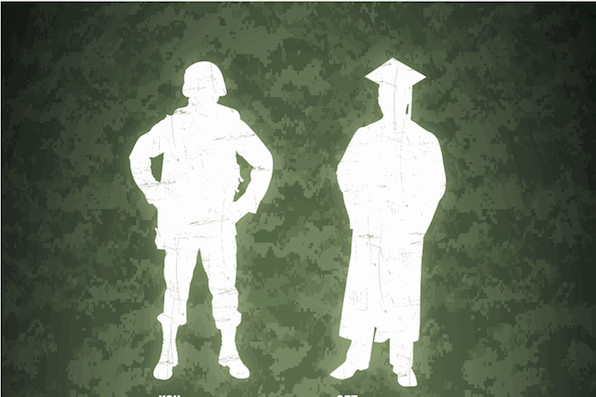By Steve Novotney
Weelunk.com
He left for the Army’s boot camp on August 21, 2001.
For 20 days he lived with the other recruits in a “Receiving” barracks.
On Wednesday, Sept. 12, 2001, my son, Michael, began his basic training.
One day after.
He signed up for four years with an Infantry MOS (job description), so we knew he was training for battle against those who perpetrated the 9/11 attacks. During his basic training graduation, one Army official announced that our son would be a part of “the first wave of infantry soldiers that would fight the war on terror.”
My wife immediately looked up at me and asked, “Does that mean he’s going somewhere soon?”
I said, “No. He’s only been trained how to bleed green. He knows nothing yet about combat.”
I was wrong.
Four weeks later, Michael was on a plane for Afghanistan to join his new unit in the 101st Airborne Division, Air Assault, Charlie Company, 3-187 Infantry Regiment, and he would not return for more than six months.
Then he was deployed to Kuwait – on his mother’s birthday no less – to take part in the invasion of Iraq in March 2003, and that tour lasted through his 21st birthday, Easter, Thanksgiving, Christmas, and New Year’s Day.
September 2005 – September 2006
Three weeks before his contract was to expire in August 2005, the Army exercised the “stop loss” option in order to return him and his battle buddies to Iraq for a second time, and a second year.
I would not wish Blue Star status to an enemy if I had one.
Michael returned home to the Upper Ohio Valley in November 2006, and immediately enrolled at West Liberty University. Eight semesters later, he graduated with a degree in Business Administration, and he has been employed as a veteran outreach specialist by the Veterans Administration at the Wheeling Vet Center since August 2011.
He’s one of the lucky ones.
Not only did he return home to American soil alive and with all the body parts he left with, but he also came home to a family foundation that allowed him to pursue higher education. Not many of his battle buddies can say the same. Instead of college when they returned to civilian status, they had to find whatever job they could to pay for the life they created while serving our country.
Some got married and had children, and most had the monthly car payment, the cell phone bill, the rent, and so on. That means they did not have the opportunity to take advantage of the biggest prize received by our veterans from our federal government, the G.I. Bill.
That needs to change, and that is why I have proposed to state and federal lawmakers what I nicknamed, “The Empty Chair Education Program for American Veterans.” The premise involves state-funded colleges and universities allowing veterans to attend classes for free while the federal government redirects the G.I. Bill dollars to the former soldier and not the schools.
Please understand I am not suggesting free room-and-board and books. Only tuition. Only knowledge.
W.Va. Del. Erikka Storch first introduced this idea to colleagues three years ago, and many obstacles have been encountered and addressed. The state lawmaker said there exists a chance a bill could be introduced in the House of Delegates at some point during the upcoming regular session.
I understand why that has been the case because to achieve such a change would require cooperation from a lot people directly involved with federal-level and state-level of governments.
But West Virginia, whose residents, per capita, have served more for the American military than any other state, needs this option.
Education opens doors and clears paths, but the vast majority of our American veterans cannot gain access because, ironically, of their service to you and me.
If you cannot grasp this idea, suggest another. It’s our turn to defend them.



